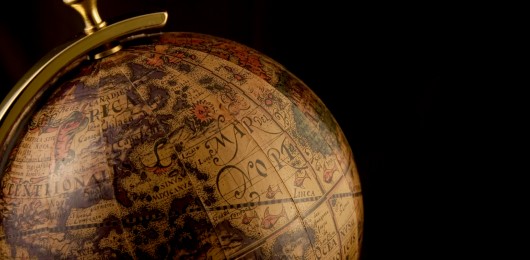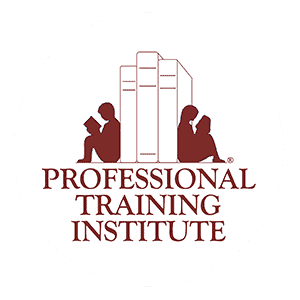
Many of the people who we consider as changing the course of history for the better were dyslexic. These people were not only able to think outside of the box, but they had the ability to shatter the limitations of the current thinking of their day. They were visionaries who gave birth to ideas that have impacted history in remarkable ways.
These revolutionary thinkers are not limited to one area of pursuit, but have contributed to the world in all areas. They were inventors & scientists, political leaders, writers & journalists, filmmakers, actors & entertainers, athletes, artists, designers, architects, lawmakers, military heroes, and musicians.
One thing that all of these people have in common is they all have the ability to adapt. They all overcame adversity and managed to create incredibly successful lives.
The first U.S. president, George Washington, was dyslexic. He had great difficulty spelling words. Historians report that Washington didn’t spend a lot of time in school, but was a self-taught man. Washington often spelled words the way they sound like coff for cough. 1
Albert Einstein, the most influential physicist of the 20th century, was dyslexic. He loved mathematics and science, but he disliked grammar and always had problems with spelling. The headmaster of Albert’s school suggested he should attend a trade school and his teachers reportedly declared him as borderline intellectually impaired. 2
Thomas Edison, regarded as the one of history’s most prolific inventors, only attended school for a short time. When a teacher referred to him as being addled (mentally confused), Mrs. Edison withdrew Thomas and home-schooled him. Thomas went on to make contributions, such as inventing the light bulb that transformed the lives of people all over the world. 3
In 1903, Henry Ford founded Ford Motor Company, and five years later the company produced the first Model T. The Ford Motor Company is the second-largest car company in the US and fifth in the world. 4
Steve Jobs revolutionized the technology field by developing the Macintosh computer, iPod, iPhone, and iPad. As a child, Jobs was recognized as highly intelligent, but he experienced frustration with formal schooling. Jobs worked on electronics with his father in the family garage where he began to develop his mechanical abilities. 5
Muhammad Ali is considered one of the greatest athletes in boxing history, but as a child he hated to read. Diagnosed with dyslexia, Ali struggled to do well in school because of his difficulties with reading causing him to barely graduate high school. 6
The great painter, scientist, and thinker, Leonardo DaVinci, had dyslexia. Constantly sketching ideas for his inventions and drawings, DaVinci very often wrote his notes backwards in mirror image. His spelling was also considered erratic and peculiar. 7
The Great Gatsby is one of the most famous novels written, but did you know that its author, F. Scott Fitzgerald had dyslexia? He was reportedly kicked out of school at the age of 12 for not focusing or finishing his work. He struggled with spelling, and yet succeeded as a writer. 8
The famous children’s author, Patricia Polacco, didn’t learn to read until the age of 14. Polacco suffered from undiagnosed dyslexia until a teacher recognized her disability. Polacco goes on to recognize this teacher in the book Thank You, Mr. Falker, which shares the story of what happened when he recognized her dyslexia. 9
Movies helped the famous filmmaker, Steven Spielberg, cope with dyslexia. In a rare interview, Spielberg discussed being diagnosed about five years ago. He learned to read two years later than his classmates and was teased. Spielberg talked about dreading school. He documented this experience in the 1985 movie, Goonies – a movie about being friends with a group of fellow outcasts. “I was a member of the Goon Squad,” Spielberg said.
Spielberg candidly shared that it takes him more than twice as long as most peers in Hollywood to read books and scripts. Spielberg told the website Friends of Quinn, “It was like the last puzzle part in a tremendous mystery that I’ve kept to myself all these years…I never felt like a victim…movies really helped me…kind of saved me from shame, from guilt…making movies was my great escape.” 10
These are just a handful of many famous people with dyslexia who have made a profound impact on the world despite having to overcome enormous obstacles.
When Time Magazine asked Richard Branson, founder of Virgin Atlantic Airlines, whether dyslexia hindered his business abilities, he replied, “Strangely, I think my dyslexia has helped.” 11
It’s obvious that while these inspiring people with dyslexia have faced many difficulties, they have all been able to access their potential and bring it forth in the world.
1 Hennessey, Cail Skroback. “George’s Spelling Woes” Appleseeds, 2004, Vol. 6 Issue 6, p10.
2 Albert Einstein. (2014). The Biography.com website. https://www.biography.com/scientist/albert-einstein
3 Thomas Edison, One of the world’s most famous inventors, By Patricia Daniels, Contributing Writer. https://www.thoughtco.com/thomas-edison-1779841
4 Henry Ford. (2014). The Biography.com website. https://www.biography.com/business-figure/henry-ford
5 Steven Paul Jobs. (2014). The Biography.com website. https://www.biography.com/business-figure/steve-jobs
6 Muhammad Ali. (2014). The Biography.com website. https://www.biography.com/athlete/muhammad-ali
7 Davis Dyslexia Association International. “Leonardo, Portrait of a Dyslexic Genius.” https://www.dyslexia.com/famous/leonardo-da-vinci/
8 The University of Michigan. “Success Stories: Famous Authors with Dyslexia.” Dyslexia Help. http://dyslexiahelp.umich.edu/success-stories/famous-authors-with-dyslexia
9 Patricia Polacco, Who Am I. http://www.patriciapolacco.com/author/bio/bio.html
10 Steven Spielberg on unlocking ‘tremendous mystery’ of his dyslexia, Rebecca Keegan, 9/25/12, http://articles.latimes.com/2012/sep/25/entertainment/la-et-mn-steven-spielberg-on-unlocking-tremendous-mystery-of-his-dyslexia-20120925
11 Why Dyslexia Makes For Great Entrepreneurs, 6/19/12, http://www.growthbusiness.co.uk/the-entrepreneur/lessons-from-an-entrepreneur/2108946/why-dyslexia-makes-for-great-entrepreneurs.thtml










Jaydin Skinner says: